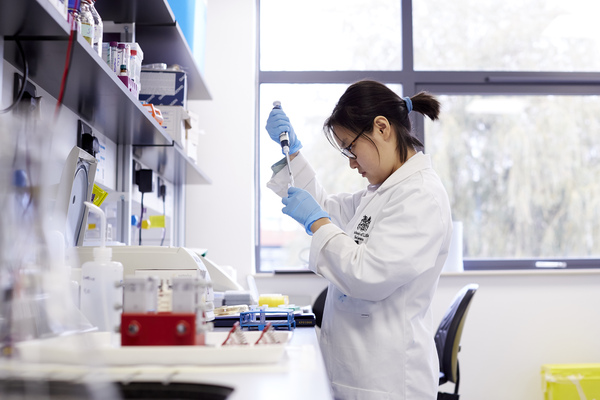Module Overview
This module aims to provide specialised training in larger scale growth and utilisation of microbial and cell cultures. Lectures, practicals, and workshops focus on the analysis of growth kinetics and product yield optimisation with the aim of providing insight into historical and cutting-edge, large-scale implementation of these biotechnologies. The practical components of this module seek to provide students with the opportunity to experience all aspects of small-scale fermentation from constructing a fermenter through to analysis of fermentation products.
Module Overview
This module aims to reinforce the underlying concepts and principles of identification of infectious diseases developed through the students' existing knowledge of basic microbiology and medical microbiology. Students are expected to become familiar with diagnostic and identification techniques involved in the field of clinical microbiology, and be able to apply developing knowledge and skills in molecular biology to contemporary issues and concerns in the field of microbiology.
Module Overview
The research projects run over the summer, although elements of them are likely to take place in the second term (research plan and literature review). Students are able to choose a research topic from a very broad spectrum of options, primarily linked to the research focuses of the teaching staff. Supervisors will provide outline projects but students will also have the opportunity to develop their research projects in specific directions relating to their individual interests if staff expertise permits.
Module Overview
This module aims to describe the applications of microbiology in industrial and environmental processes. The industrial aspect of the module emphasizes how microbiological knowledge and understanding can be used to improve commercial processes relevant to industries such as food production and water treatment. The environmental aspect of the module considers the role of microbial communities, interactions, and processes in the environment.
Module Overview
This module aims to enable students to understand the microbiological and environmental factors that contribute to the incidence, prevalence, transmission and control of healthcare-associated and communicable infection. The theory underpinning this module will be supported by key current examples of infectious diseases. Some key theories discussed will be microbial pathogenesis, prevention and treatment of infectious disease, alongside case studies and consideration of the role of professional bodies.
Module Overview
This module will examine the molecular interactions between viruses and host cells with a focus on the mechanisms by which viruses subvert host cell processes. This will involve the use of example viruses from both the DNA and RNA groups of viruses. The roles of virus infections in inflammatory diseases, oncology, as well as emerging diseases will be considered.
Module Overview
The module focuses on the development of transferable skills that are applicable both professionally and to research projects, within the programme of study and beyond. The skills will be relevant to the broad life and environmental sciences and will allow students to strengthen their proficiency primarily in these areas: scientific writing and communication skills, research data analysis and presentation, professional and career skills.
Module Overview
This module aims to equip students with core practical and writing skills and to introduce them to selected advanced concepts illustrating the depth of understanding expected at Master's level, building on their undergraduate experience. The module covers core lab and writing skills, the diversity of microbial life, growth and reproduction alongside relevant areas of biochemistry, genetics, ecology and evolution.




